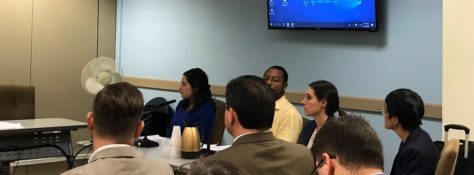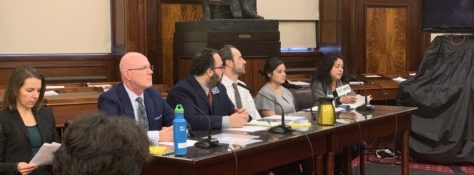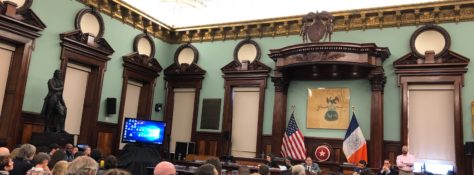News
A new $1.25 million pilot program spearheaded by New York City Council Member Rafael Espinal will put electric school buses on the road in NYC, an effort NYLCV has supported. In addition, the City Council Environmental Protection Committee recently held a hearing on Council Member Danny Dromm’s bill, Intro. 455, to speed up the transition to cleaner school buses.
Learn MoreNews
Late last month, the Trump Administration approved a plan to allow oil companies to conduct seismic testing along the Eastern Atlantic, seen as the first step toward the administration leasing federal waters for oil drilling. Oil and gas exploration not only severely disrupts marine wildlife, but it would also worsen the fight against climate change.
Learn MoreNews
At a City Council Environmental Protection Committee hearing last week, NYLCV testified in support of groundbreaking legislation that would make New York City the first in the world to set carbon emissions standards for buildings, which generate 70% of greenhouse gases in the City.
Learn MoreNews
The City Council’s Committee on Environmental Protection held a hearing last week on legislation that would set greenhouse gas emissions for buildings over 25,000 square feet.
Learn MoreNews
Congestion pricing can be much more than just a subway-fixing fund. It could also enable the electrification of the city’s entire bus fleet – a move that would save fuel costs, reduce the city’s carbon emissions and improve air quality for millions of New Yorkers that live, work and learn along the city’s maze of bus routes.
Learn MoreNews
The Delaware County Electric Cooperative (DCEC), SUNY Delhi and the New York Power Authority are planning a solar power generation system that will power the campus and the local community.
Learn MoreNews
Hydropower has been a staple of power production in New York for centuries. It generates electricity by capturing the energy of falling water. The School Street hydroelectric plant in Cohoes now generates 172 gigawatt hours per year and Cornell University also has its own hydropower plant.
Learn MoreNews
Governor Cuomo and DEC announced that the settlement funds will be invested in clean transportation including earmarking 40% for buses - a successful step forward in our Clean Buses for Healthy Niños advocacy campaign. DEC will prioritize these emissions reduction projects in environmental justice communities that have traditionally been overburdened by pollution, which leads to higher rates of asthma and other respiratory illnesses.
Learn More



